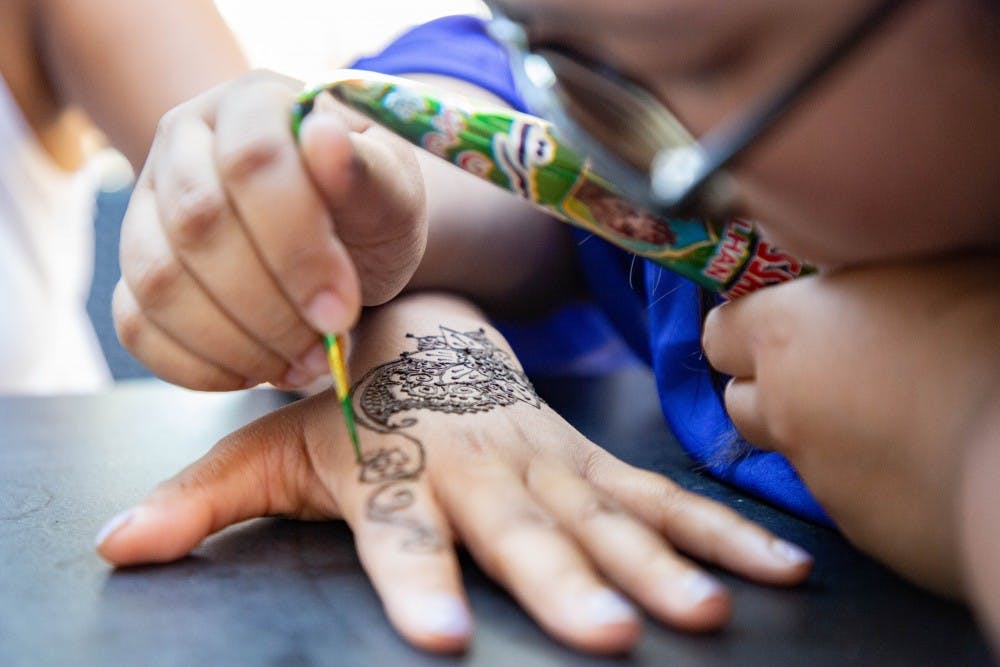While henna has roots in traditional body art from the Indian subcontinent and throughout Eurasia, one club at ASU is using the temporary tattoos for a more philanthropic aim.
Hands for Henna raises money for refugee organizations through the henna tattoos club members create.
Nisha Rehman, a senior studying biological sciences, founded Hands for Henna in 2016.
Rehman said Hands for Henna has three priorities: informing people on the importance of refugee girls, supporting them with school supplies and hosting educational classes.
“People have this misconception that once (refugees) get to America it’s all good and well, but (the refugees) don’t know anything about the systems in America,” Rehman said. “Helping them understand (systems in America) and helping them navigate so that they can better integrate into our society is really beneficial to them.”
To this end, Hands for Henna sets up stations at events where they charge five dollars for henna tattoos.
The proceeds help fund organizations including Refugee, Integration, Stability and Education, an organization in Arizona that teaches children how to achieve their educational and personal goals.
R.I.S.E. helps volunteers develop personal relationships to the students they teach, impacting both lives involved.
“As (refugee) girls get older, the rate of women going to school and receiving an education drops drastically,” Rehman said.
Rehman, who has been practicing the art of henna since she was seven years old, said she is happy she is able to impact the lives of others using her talent.
Shourya Kothakapu, a senior majoring in biological sciences and one of the co-vice presidents of Hands for Henna, said she hopes her efforts will have a lasting impact.
“It’s great being a mentor for these kids until they can stand on their own and until they’re able to help others as well," Kothakapu said.
Barbara Klimek, an associate professor in the School of Social Work, has worked with refugees for over 25 years. She's spent more than a decade helping students like Rehman get involved with the world's ongoing refugee crises.
“It is eye-opening to many to not just learn from videos or hear about it, but actually interact with this population,” Klimek said. “The best way to experience diversity in our city is to get involved with different people.”
Correction: Due to a sourcing error, an earlier version of this article misidentified a source as Amal Altaf. The source was Shourya Kothakapu. The article has been updated to reflect that change.
Reach the reporter at eborst@asu.edu and follow @ellieeborstt on Twitter.
Like The State Press on Facebook and follow @statepress on Twitter.
Ellie Borst is the executive editor of The State Press, overseeing the publication and its four departments: online, magazine, multimedia and engagement. She plans to graduate in May 2022 with her master's in legal studies and got her bachelor's in journalism in 2021. Previous roles she has held since joining SP in 2018 include digital managing editor, magazine managing editor, community and culture desk editor, and arts and culture reporter.




